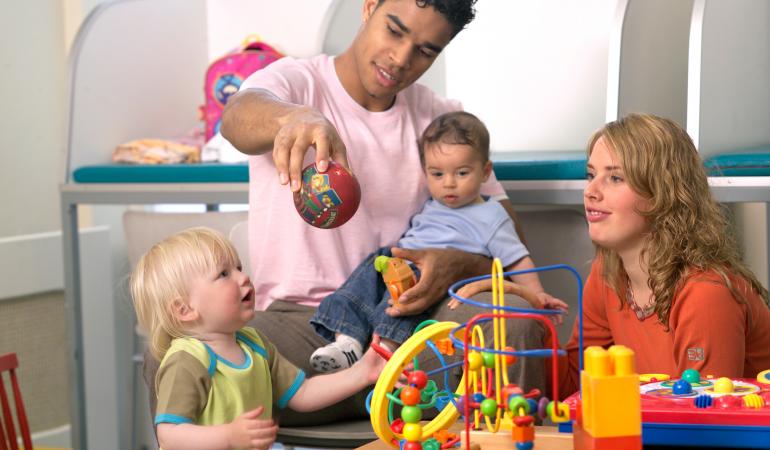
Participation in the vaccinations against mumps, measles and rubella (MMR) and diphtheria, pertussis (whooping cough), tetanus and polio) (DTaP-IPV) has decreased slightly among infants (-1%). This is RIVM's conclusion based on provisional figures. Yet turnout for the first HPV vaccination was higher (+6%) than last year and has risen to 70%. HPV stands for human papillomavirus. This virus can lead to various forms of cancer.
Infant participation rate
The previous measurement in January 2021 and the 2021 report dealt with the vaccination of infants before the outbreak of the coronavirus SARS-CoV-2. The current measurement deals with provisional figures for MMR and DTaP-IPV vaccination among infants during the coronavirus outbreak.
Signals from practice point to various possible causes for the slight decrease. For example, measures to limit the spread of the coronavirus may have played a role. Because of these measures, people sometimes had to reschedule their vaccination appointments. Staffing also played a role. Employees were often assigned other tasks instead of providing childhood vaccinations. The COVID-19 vaccination campaign may have affected participation in the National Immunisation Programme (NIP) as well. Other countries have also reported a slight drop in vaccination-programme participation.
Participation among infants was around 1% lower than the year before. The decrease in provisional figures was very slight, in other words. This means that in the Netherlands, the impact of the coronavirus outbreak on vaccinations seems to be small for the time being.
Participation in HPV vaccination
The provisional figures for HPV are about girls who were invited to get the HPV vaccine during the coronavirus outbreak. This was also the case in January 2021. Yet turnout for the first HPV vaccination was good. Seventy per cent of girls born in 2008 have been vaccinated.
By January 2021, 64% of girls born in 2007 had received the vaccine. The percentage among girls born in this year rose further last year to 74%. This is because HPV group vaccinations for girls born in 2007 had been postponed due to corona. Starting this year, both girls and boys will be invited to get the HPV vaccine in the year they turn 10.
It is safe to continue NIP vaccinations
These figures give cause for some concern so it is important to stay alert. Especially if the slight dip in infant vaccinations continues in 2022. NIP Programme manager Jeanne-Marie Hament responded to the provisional figures. She said: ‘In the Netherlands, we consider it important for children to have a healthy start in life. That includes vaccinations against infectious diseases. The NIP was launched in 1957. The vaccines have been extensively researched and are safe and effective. We have proven that it is safe to continue these vaccinations, even during the coronavirus outbreak. This is thanks to all the very dedicated youth healthcare employees. So I urge all parents to protect their children by making sure they get their NIP vaccinations. And if your child has missed an NIP vaccination, they can still receive it free of charge.’
The annual report with the final figures on NIP vaccination rates will be published in June. RIVM expects those figures to lead to the same conclusion.